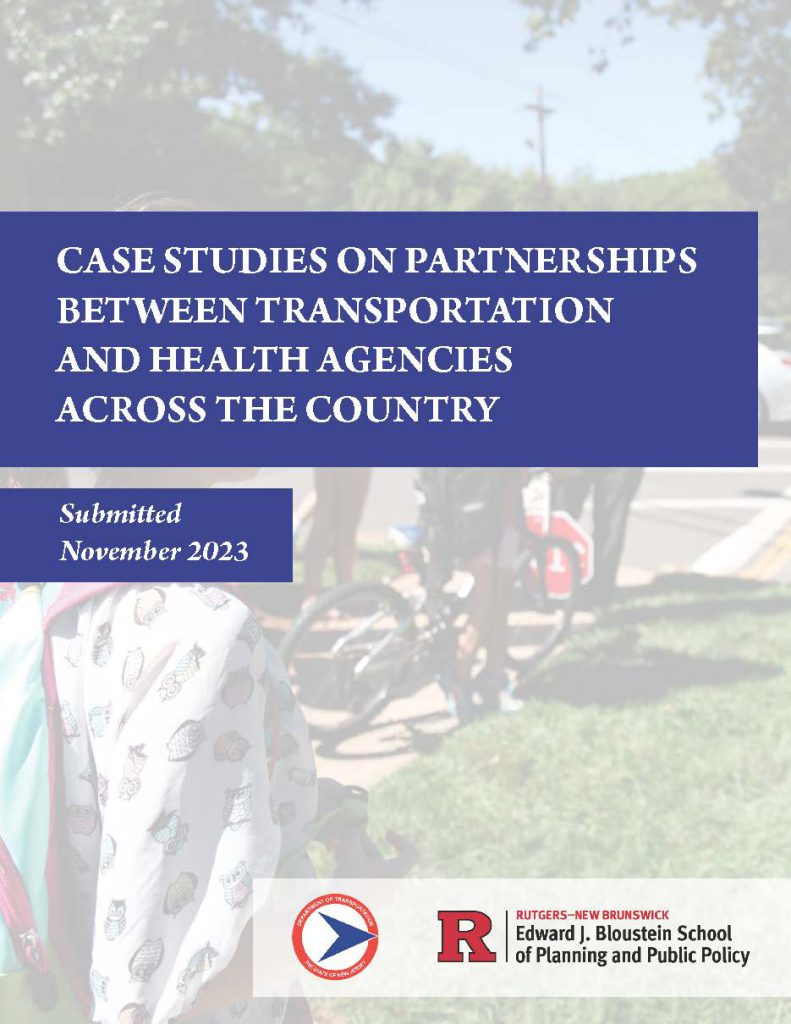The NJDOT Bicycle and Pedestrian Resource Center has recently released a new report: “Case Studies on Partnerships between Transportation and Health Agencies Across the Country.” This report uses case studies to examine how states around the country incorporate and apply different data collection and analysis methods in partnerships between transportation and health agencies to proactively improve health and safety outcomes. For example, The New Jersey Safety and Health Outcomes (NJ-SHO) Data Warehouse is used by researchers and other partners of the Center of Injury Research and Prevention (CIRP) of the Children’s Hospital of Philadelphia (CHOP) Research Institute to advance safety and health research on injury prevention, traffic safety, and other areas of population health.
The Relationship Between Transportation and Health
Our transportation systems can have profound impacts on our health. The way that transportation systems are planned and designed shapes our built and social environments, and can either provide or limit opportunities for us to improve our health and well-being. A safe and multimodal transportation system improves our access to goods and services that are important for our health. Conversely, a transportation system designed predominantly for private automobiles limits access to goods and services for people who do not own or drive a car.


The many areas where transportation and health intersect. (Source: MnDOT)
Report Highlights
The report examines how different states incorporate data collection and analysis methods in partnerships between transportation and health agencies to improve health and safety outcomes. The research focuses primarily on two types of partnerships:
- Incorporating health data in state-level project development. This partnership looks at how states have incorporated health data in project selection and evaluation criteria, project scoping, and planning processes.
- Linking health and crash data. This partnership looks at how states have used linkage programs to understand connections between health outcome and crash data.
The report looks at case study examples in New Jersey and across the country, including:
- New Jersey Safety and Health Outcomes (NJ-SHO) Data
- Massachusetts Healthy Transportation Compact/Project Prioritization and Scoring Process
- Minnesota Equity and Health Assessment for the Highway 252/I-94 Corridor
- Maryland Crash Outcome Data Evaluation System (CODES)
- North Carolina Crash Injury Surveillance System (NC-CISS)
The report identifies key findings related to agency personnel, processes for collaboration, health and other types of impact assessments, and funding. In studying state-level data-sharing partnerships between transportation and health organizations, this research can help identify new areas of concern and strategies that could be applied in New Jersey, to improve public health, public transportation, and quality of life.
The full report can be accessed here.
